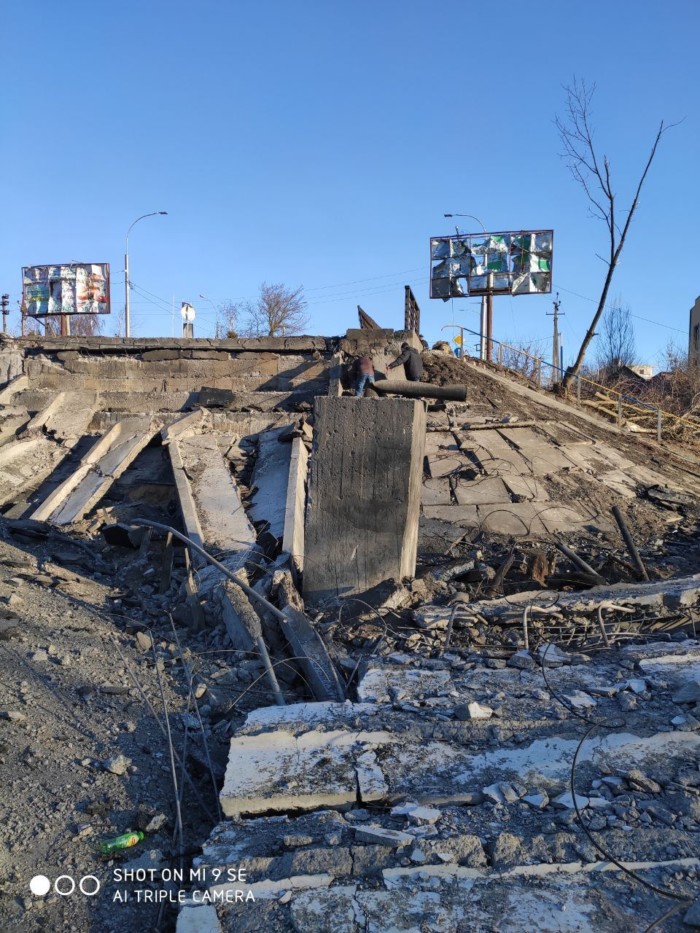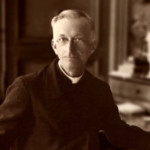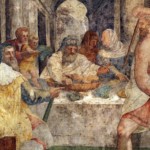After a long and tense televised speech and after the recognition of the independence of the Donetsk and Lugansk (Donbass) regions, the Russian president ordered the military to cross the border on February 21.
The post-Soviet conflict model
Russian military intervention has already happened in 1992 with respect to Moldova (Russification of Transnistria). It was repeated with Putin in 2008 in the Russian-Georgian war (occupying part of Ossetia and Abkhazia) and again in 2014 in the military occupation of Crimea (taken from Ukraine).
Putin creates on his borders new “state” formations that both use these territories as a buffer zone, poison the respective countries path toward democracy and economic reform. These countries are always forced to submit to the threat of the bigger neighbor. But above all these actions feed the claim of the “great Russia”, of the territories and condition of the Soviet Union.
For the Russian president, the end of the Soviet Union is the great tragedy of the century that must be remedied, even by tearing up signed bilateral and multilateral pacts (such as the agreement on medium-range missiles – moreover, also cancelled by Trump – and the treaty on conventional forces in Europe).
The expansion of NATO (North Atlantic Treaty Organization) is invoked as a reason to strengthen Russian defenses and to weaken the pull of the European Union. As Greek Catholic Archbishop Borys Gudziak (who is responsible for North America) said, the reason for Russian aggression is no the opportunity for a military outlet on the Black Sea. It is not the defense of “Russian speakers “because Russian speakers make up the majority of the army defending Ukraine and they are the ones killed by rockets and snipers. They are the majority of the 14,000 victims in the eight years of war.” Nor is it about the defending the power of the Russian Orthodox Church, “because many of the people killed were baptized in the Russian Orthodox Church.” The real reason “is because Ukraine is a nascent and, in many ways, vibrant democracy.”
A country in transit from totalitarianism to freedom is intolerable at the Russian borders because what happens in Kiev could happen in Moscow. Among the first results of the military operation there is the expansion of the NATO alliance (Sweden and Finland have initiated the application for entry), the convergence in the European Union, and the renewed centrality of the United States.
But where the Russian army will stop? The Russian army’s behavior strengthens right-wing nationalism in the neighboring countries (Poland, Lithuania, Estonia). It could lend legitimacy to China to proceed with the occupation of Taiwan.
Prayer and peace
The climate of war has forced everyone, especially the Churches, to strengthen the preaching of peace. Pope Francis called all Catholics to a prayer for Ukraine on Jan. 26 (and March 2) , as he did for Lebanon in 2020.
Three days earlier he said, “I follow with concern the growing tensions that threaten to deal a new blow to peace in Ukraine and call into question the security of the European continent, with much wider repercussions.” “How sad it is, when people and peoples who are proud to be Christians see others as enemies and think about waging war on each other!”
On the same wave the Nuncio in Ukraine, Msgr. Visvaldas Kulbokas, Card. Leonardo Sandri, Prefect of the Congregation for Eastern Churches, the Council of European Bishops’ Conferences, Annette Kurschus, the President of the German Protestant Church, ,and Bartholomew, the Orthodox Patriarch of Constantinople, issued a joint statement “we call for lasting peace, stability and justice in the region”. The Polish bishops, strengthened by their closeness to Russian anti-Westernism and historical relations with Ukraine, propose, with some ambition, a meeting of all the confessions involved in the conflict.
From within Ukraine calls for peace are multiplying. The Orthodox Metropolitan Epiphany (Autocephalous Church) denounces the Russian threat and calls for peace. The Latin Bishop of Kiev, Vitalii Kryvytskyi, affirms that there is no panic, but many are thinking of moving to the western regions of the country. The senior archbishop of the Ukrainians (Greek Catholics), Sviatoslasv Shevchuk, says, “People say that if the pope comes to Ukraine, the war will end.” Greek Catholic Bishop Tuchapets leads the daily recitation of the rosary for peace in his eparchy.
Ukrainian Ambassador to the Holy See, Andriy Yurash, reminds that the government is in favor of direct talks between Ukraine and Russia in neutral territory such as the Vatican. On February 16, proclaimed the Day of National Unity, the Pan-Ukrainian Council of Religions will meet in St. Sophia Cathedral in Kiev for a common prayer.
On the part of the Russian ecclesial leadership, normally very talkative, a substantial silence. A silence that sees the gap widen between the two Ukrainian Orthodox Churches, the pro-Russian one (Bishop Onufrio) and the autocephalous one (Bishop Epifanio). The latest demographic surveys give the majority of the Orthodox population to the latter Church. The ecclesial rift in 2019, with Bartholomew’s granting of autocephaly, has fueled mutual suspicions.
From the pro-Russian political-ecclesial side, alarms have been raised over a possible agreement between Ukraine and the Holy See. It would be, they say, a further wound to the mutual relationship between the confessions. Mgr. Borys Gudziak concludes: “That the Russian Orthodox Church should walk hand in hand with the aggressive military assault on a democratic country and society is truly astounding”.
Russkiy-mir (Russian thought) and imperial dreams
Apart from the case of the Orthodox bishops of the Donbass directly involved, such as Msgr. Hilarion of Mariupol, who asked the monasteries to open their doors to refugees, there have been only a few words come from Moscow, usually interventionist. Msgr. Hilarion, president of the Patriarchate’s foreign relations department, takes for granted the distance between the two autonomous republics of Donbass and Ukraine and calls for the resumption of dialogue between the parties, shifting the issue to the conflict between Russia and the West.
The full adherence of the Russian Orthodox Church to Putin’s policies is further reinforced. No voice from the ecclesial leadership has risen to raise questions about interventions in Georgia, Azerbaijan, Ukraine (first for Crimea, today for Donbass). In some way the ecclesiastical dome, and in particular Patriarch Cyril, anticipated the government’s project, theorizing Russkiy-mir (Russian thought), that is, the extension of Moscow’s responsibility over the Churches of the nations that were formerly part of the Soviet Union and over territories more or less nearby.
The Georgian case (seat of an ancient patriarchate) was hard to bear, but a prompt intervention (the rapid replacement of the metropolitan bishop) smoothed out the danger of a split in Belarus. The Ukrainian defeat (autocephaly) is far from being digested. The geographical boundaries have been repeatedly defined by Bishop Hilarion as follows: Russia, Ukraine, Belarus, Moldova, the former Asian Republics, Latvia, Lithuania, Estonia (in addition to Japan, China and Mongolia).
More recently, the opening of an exarchate for Africa. On February 2, Msgr. Hilarion received from Putin one of the most important Russian honors, the Order of Aleksandr Nevsky. On that occasion he expressed himself as follows: “Our department is sometimes called the Ministry of Foreign Affairs of the Church. Which is not accurate because we do not only deal with foreign affairs, but also with interfaith relations in our homeland. And in recent years we feel more and more like a kind of defense department, because we have to defend the sacred frontiers of our Church.”
“The Russian Church was formed over the course of more than ten centuries and we inherited it within the boundaries in which it was created. We did not create it and we cannot destroy it. So we will continue to resist the external challenges we face today.”
Putin speaks like Cyril
Putin, in the flood speech mentioned at the beginning, after having accused the Ukrainian government and leadership of being a regime of puppets, corrupt, neo-fascist and economically bankrupt, became a champion of religious freedom, calling for the defense of the pro-Russian The Ukrainian Orthodox Church, with the same arguments used by the Patriarchate: “The Ukrainian authorities have cynically transformed the tragedy of the splitting of the Church into an instrument of state policy. The current leadership of the country does not respond to the demands of (pro-Russian Orthodox) citizens to repeal laws that violate the rights of believers.”
On the contrary, there are new punitive bills against the Church referring to Msgr. Onufrio. “Kiev is continuing to prepare a crackdown on the Ukrainian Orthodox Church of the Moscow Patriarchate.”
In addition to Russkiy-mir (Russian thought), the very long Orthodox tradition of the “symphony” between Church and state, Church and power weighs heavily. In the long history of Orthodoxy there is no elaboration of the possible conflict between civil and ecclesiastical power. And, even though it has experienced very long periods of persecution (as in the case of the Soviet regime), it has not yet constructed a doctrine on the subject, apart from a Russian text on social doctrine in the first decade of the century and a second, more recent, outcome of the Council of Crete.
The future of ecumenism
If the intra-Orthodox schism has fueled the Russian-Ukrainian conflict, one and the other put in serious difficulty the ecumenical path of the Churches, which is today, for the most part, in the hands of the Catholic Church.
It is true that the pope can talk to all Orthodox and that other Christian denominations favor the ecumenical effort, but the schism between Hellenists and Slavic Orthodox reshapes the talks (theological ones are less and less possible) and redefines appointments such as the long-awaited second meeting with Patriarch Cyril. The pope will not be able to ignore the Ukrainian case.
But perhaps it is precisely the human disaster that is already underway (14,000 victims, one and a half million refugees) and that a widening of the war will further explode that will force all believers to those relationships of esteem and closeness, of help and understanding, of prayer and forgiveness that will allow them to listen to the imperative of Jesus to the unity of his Church.

SettimanaNews (WeeklyNews) is an online platform that offers religious information in the context of cultural and historical-civil confrontation. It inherits the paper magazine Weekly (1946-2015) which is characterized by its pastoral focus.
North Italian Religious Province of the Dehonians is the owner of the site.





